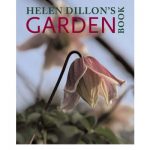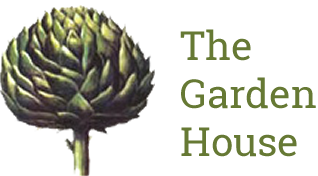Helen Dillon’s radical philosophy
Posted:2 April 2010
“Dig it up and throw it away” was the title of a talk given by the much-admired gardener Helen Dillon at last Sunday’s Hardy Plant Society (Sussex Group) meeting.
 Drawing on over thirty-five years’ experience in her Dublin garden, Helen amused the audience greatly with her tales of plants that simply wouldn’t behave as she wanted or perform as she wished! “Love, nurture, let go” is her philosophy.
Drawing on over thirty-five years’ experience in her Dublin garden, Helen amused the audience greatly with her tales of plants that simply wouldn’t behave as she wanted or perform as she wished! “Love, nurture, let go” is her philosophy.
Her illustrated talk encompassed many aspects of gardening that ring true for us all. She is a most impressive plantswoman, yet she also completely understands the issues, angst and frustrations we experience in our own gardens.
Helens ideas could be considered a little left field (we love that!). Refreshingly she’s all for rethinking the expected, happy to make room for new ideas…
- Having grown tired of the huge box balls cornering her borders, Helen boldly sliced off the tops like boiled eggs and scooped out the centres – creating box bowls instead.
- Helen uses dustbins to great effect – filled with tulips, cannas and verbenas, or runner beans!
- She ties her plant labels to the looped ends of wire coat-hangers – a great idea, we loved that one.
Helen talked of some of her favourite plants – Bengal Crimson Rose (R. chinensis var. sanguinea), Isoplexis sceptrum (a spectacular evergreen shrub, native to Madeira), Bergenia purpurascens (“the only plant I ever stole” she told us) amongst many many others.
 We’re currently re-reading Helen Dillon’s GARDEN Book (ISBN: 978-0-7112-2710-1). It’s so typically Helen, a book divided into thoughts rather than chapters – Sitting in the garden, Why did it die?, Plants worth searching for, Hiding the neighbours, Scent, Burglar-proof plants – and so on. Delightful.
We’re currently re-reading Helen Dillon’s GARDEN Book (ISBN: 978-0-7112-2710-1). It’s so typically Helen, a book divided into thoughts rather than chapters – Sitting in the garden, Why did it die?, Plants worth searching for, Hiding the neighbours, Scent, Burglar-proof plants – and so on. Delightful.
NOTE: At The Garden House we are great fans of The Hardy Plant Society – it exists to inform and encourage the novice gardener, stimulate and enlighten the more knowledgeable, and entertain and enthuse all gardeners bonded by a love for, and an interest in, hardy perennial plants. If you are interested in finding out more visit www.hardy-plant.org.uk/

